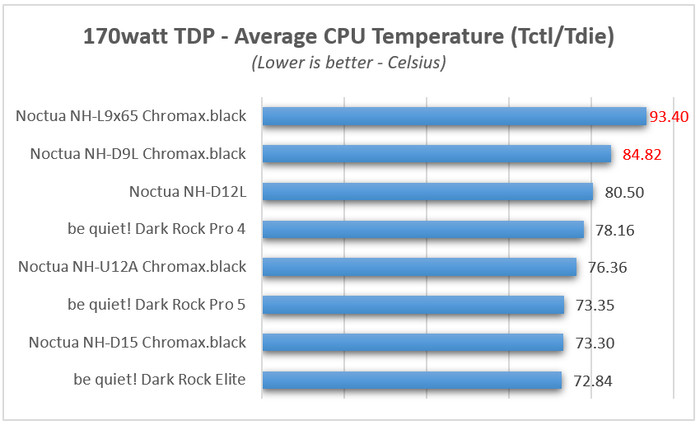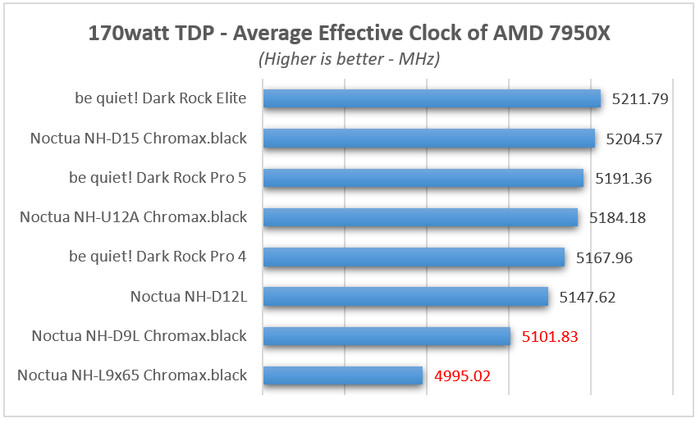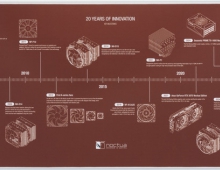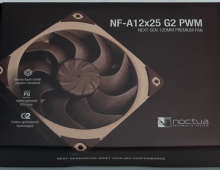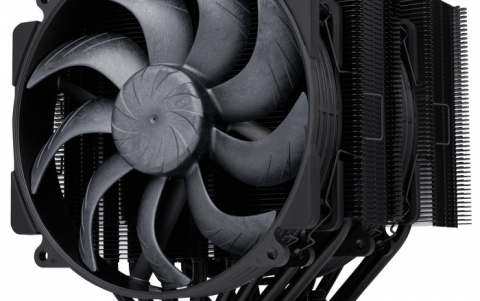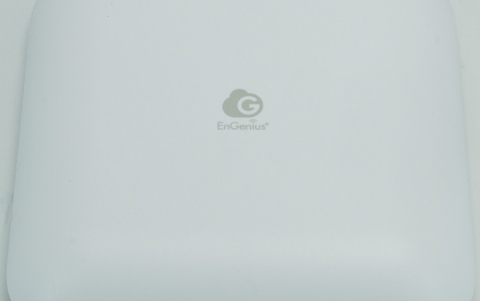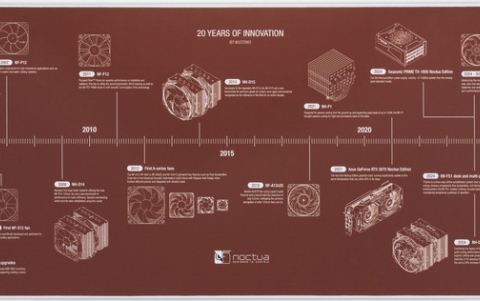Noctua NH-L9X65 - NH-D9L
4. Performance
- CPU: AMD Ryzen 9 7950X
- Thermal compound: Noctua NH-T1
- Case: SteamCom BC1 V2 Bench Table
- CPU Cooler: Noctua NH-U12A Chromax.Black + 2x120mm Stock Noctua fans
- Motherboard: Asus ProArt X670E-CREATOR WIFI with 1802 BIOS
- Memory: 2x16GB AddLink Spider X5 DDR5-6000MHz (EXPO Profile)
- PSU: be quiet! Dark Pro 13 1300Watt
- Main Storage: Samsung 980Pro 1TB
- VGA: MSI GeForce RTX 4090 SUPRIM X 24G
- Operating system: Windows 11 x64 + latest motherboard/AMD chipset drivers installed (DirectStorage enabled drive)
- Software: OCCT Enterprise Edition (2 sec interval monitor)
- Ambient room temperature ~ 23 Celsius (with AC climate control) - Environment Temperature measurements: Precision Gold N09AQ Envirometer Meter
Before starting our tests, we performed via the Asus Armoury Crate Fan Expert Software an optimization of the installed CPU fan in order to get optimum results. All test results were performed via a climate controller room at ~23 Celsius for all tested CPU coolers, at the same position of the room.
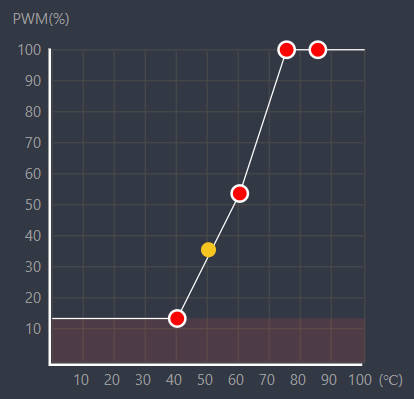
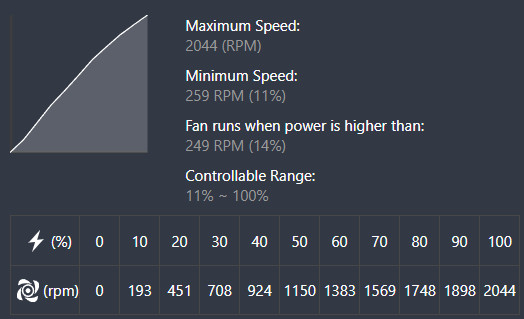
We performed four tests depending the CPU TDP load that can be set under Bios-> AI Tweaker-> Precision Boost Overdrive->AMD Eco Mode->
- cTDP 65Watt (real 90Watt)
- cTDP 105Watt (real 145watt)
- cTDP 170Watt (167 real watt)
- cTDP 222Watt (via PBO at auto)
while we set the following voltages for all tests.
- CPU Core Voltage: Auto
- CPU SOC Voltage: 1.25V
- CPU VDDIO / MC Voltage: Auto
- Misc Voltage: 1.10V
Via the OCCT 12.1.11 software, we performed the Stability Test->CPU Test 15mins duration, with the stock OCCT settings, for the 65Watt / 105watt / 170watt tests:
- Instruction Set: AVX2
- Data Set: Large
- Mode: Normal
- Load Type: Variable
- Thread Settings: Auto
, while for getting the maximum 222watt TDP, we used
- Instruction Set: SSE
- Data Set: Small
- Mode: Extreme
- Load Type: Steady
- Thread Settings: Auto
Let's now pass the test results. Both Noctua NH-D9L and NH-L9x65 CPU coolers produced similar results at the lowest 65 TDP (AMD preset). The average effective clock of all cores of the AMD 7950X processor was slightly higher with the NH-D9L CPU cooler.
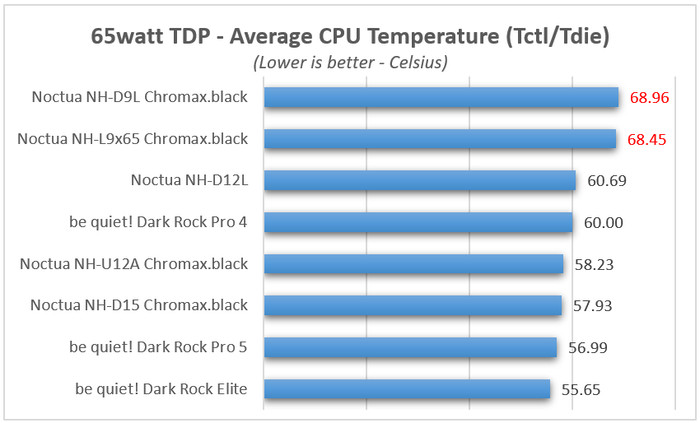
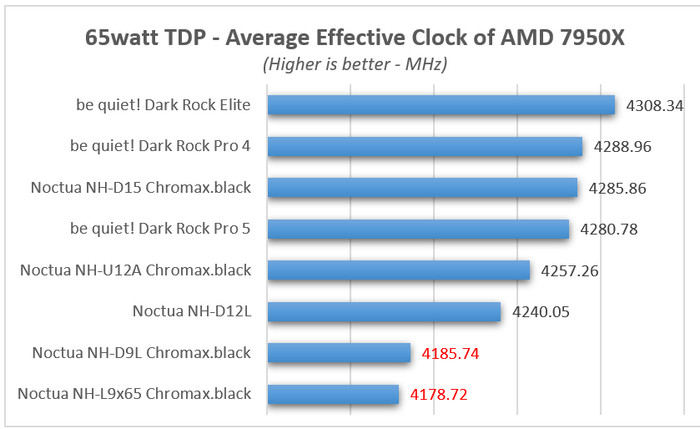
Passing to the 105watt TDP (AMD preset), the bigger volume of the NH-D9L does help and produces lower average CPU temperatures than the NH-L9x65.

Again the NH-D9L due to its bigger volume does produce higher average effective clocks for the AMD 7950X processor.
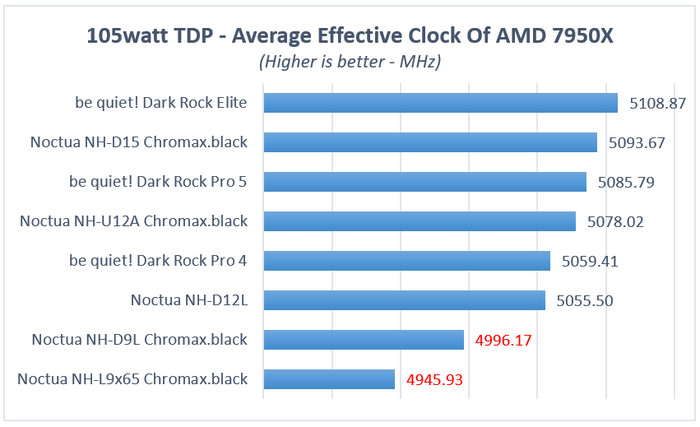
How about a full 170-watt TDP (AMD preset)? Well, we can say that both coolers can "handle" it, if you just need to use them, due to case restrictions. The NH-D9L will perform better, as was expected, however, the L9x65 despite reaching 93.40 won't thermal throttle the AMD 7950X, however will reduce the overall performance of the system with lower CPU clocks and lower boost clocks.
